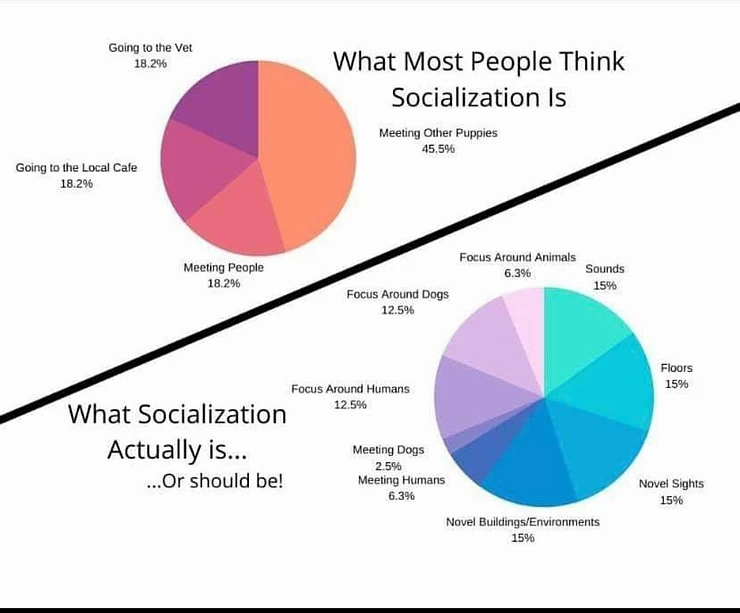Puppy socialization that goes BEYOND meeting dogs and people
- Kirsten
- May 29, 2020
- 3 min read
Updated: Feb 5, 2025
Puppies benefit from early socialization with other dogs and people, but what should you do on days where you can't let them meet other people or safe dogs? Maybe you can't because you are feeling sick, the weather is bad, your dog friends have other plans, or you just need something new to keep your pup busy. I made a checklist for you with a ton of different socialization activities that have nothing to do with physically interacting with people and other dogs. Click on the PDF link below to download your copy!
I would like you to ask yourself what you want your puppy's future to look like. Do you want to be able to go camping, hiking, or to the beach with your pup? Do you want to be able to take your dog to see your friends and family? Hopefully, you asked yourselves these types of questions before you chose your pup, but you should continue to remind yourself of these things as you socialize and train your puppy. If you want to do all of these fun things with your dog but do nothing to get them prepared, you are going to be in for a rude awakening! A puppy that has not been socialized is more likely to become fearful around new things, and they are going to have a harder time coping with stress. This is because the brains of animals raised in impoverished environments develop differently than animals that were not, which can have long-lasting effects on their behavior as adults. Genetics play a role in brain development and behavior as well, but we should still set them up for a lifetime of success by socializing them to the best of our ability.

When should I socialize my puppy? They go through a rapid development period called the critical stage of socialization. For most dogs, this window of opportunity closes at about 16 weeks of age. They should experience MANY things before that age, but you should still continue to actively socialize them after that point.
How often should I socialize my puppy during their critical stage of socialization? Aim to get them out of the house several times per week, and do daily socialization activities at home. You should also get your pup started on some basic training that is geared toward building engagement and a love for learning.
When you are out and about with your pup, be prepared with some treats, toys, potty bags, and a long line. Let your pup explore their environment on a long line, but also try to play some training games that you have been practicing at home.
Puppy socialization outings should be as positive as possible so they learn that the world is a safe place. This means that they should not be allowed to meet strange dogs, and they should not be smothered by groups of new people. This can quickly become overwhelming for your pup and teach them that the world is unpredictable and scary. Socialization does not mean that your pup must have direct interactions with new people and dogs. Instead, think of socialization as providing positive exposure to new things!
What are some things that I can do to guarantee that my pup will have a positive learning experience? Start small, such as exposing them to a new sound at low volume. Once you know they are perfectly okay with that, you can gradually increase that volume. When it comes to new sights, you can expose them at a distance and gradually get closer. Incorporate food and play into your socialization activities so your pup can develop a positive association with these new experiences.





Comments